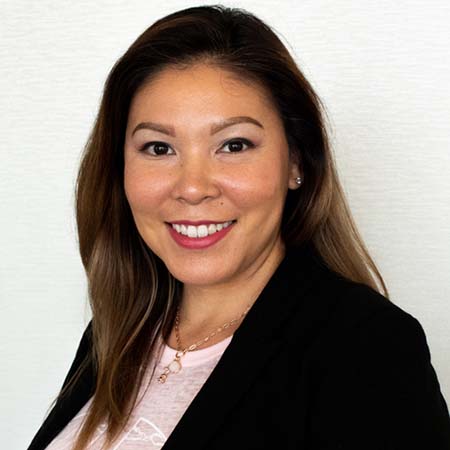PHOENIX, Ariz. — Amanda June’s 10-year background in nonprofit work pointed her toward a gap in communication between the communities she served and the media that covered them.

That “gap” caused media surrounding these primarily Native American and Latinx communities to rely on stereotypes and inaccuracies. Without any kind of standard or guideline for how to create culturally competent marketing, companies created advertising and publicity materials that often failed to accurately portray people’s heritage and culture.
“There was a lack of dialogue there, and so I found that digital media was going to be the number one way that we solve this communication gap and connection gap,” said June, the founder of SmokeFire Media.
June, who is of Navajo, Hopi, and Latina descent, describes SmokeFire as an “un-agency” focused on Native and Latinx markets that aims to bring best media and marketing practices to communities in need of them.
“We bring the under-communicated to the forefront using marketing and media best practices in a digital generation,” June told Tribal Business News. “We help businesses scale engaged audiences, grow sales, and implement culturally competent marketing strategy using our signature Cultural Manifesto and Native Brand Accelerator methodologies.”
The Cultural Manifesto is a SmokeFire proprietary service geared to provide culturally relevant and competent marketing strategies through research. First, SmokeFire helps business owners pool data about themselves and their business, what June describes as “the discovery phase.”
“You pull all of the existing information around the people’s or brands you’re about to represent,” June said.
Following that, SmokeFire gathers historical context and perspective, such as understanding the cultural background of a given kind of art or plant involved in the company’s product. From there, the company works to develop community context, or “the place the story is coming from.”
“Culture is tied to time and place and people, so information on the business’ location is extremely important,” June said. “We gather information on where this story is coming from.”
SmokeFire combines all of that data to create respectful, accurate marketing for a given product or business.
“The end product is culturally respectful, not stereotypical, and a true representation of the ethnic community it’s meant to represent,” June said. “You’re taking an informed stance around representing a brand or community.”
The second methodology, the Native Brand Accelerator, is a 90-day branding and sales mentorship program. June coaches business owners to develop their brands, find their market, launch a product line and eventually create consistent sales.
Where the Cultural Manifesto program focuses on building more culturally appropriate marketing, the Native Brand Accelerator focuses on teaching Native and Latinx business owners how to build a sustainable, predictable income through steady clientele.
June said both programs have been successful in helping “more than 50 brands and communities.”
“We’ve had artisans who usually sell jewelry locally or at marketplaces. I’ve had a baker who was just getting started. We have photographers, we have medicinal creators. They’re all over the place and it really doesn’t matter what kind of business because we’re teaching the foundational skills in the program that every business needs,” June said.
Cameron, Ariz.-based Navajo Expressions Arts and Crafts owner Denise McLellan said the Native Brand Accelerator program helped “narrow down” her story and “tell it wholeheartedly.”
“My sales have been through the roof, and it’s because I have my story aligned,” McLellan told Tribal Business News. “Just having it on paper has really helped because I’m able to express it better and explain things better to my customers.”
Thalia Roessel, owner of Phoenix, Ariz.-based SconeOn Bakery, credits early mentorship in the accelerator program for helping get her startup off the ground even during the pandemic.
“To be able to have a coach that says, ‘You don’t want to make these mistakes,’ just saves you so much time and gets you that much closer to the goal you’re trying to get to,” Roessel said.
SmokeFire represents a success story that took off after a “rough first few years of business,” June said.
“I had neither startup capital nor a specific business model, per se,” June said, noting she started the company with a $4,000 tax return. “I just knew digital media was the new frontier for Indigenous peoples.”
These days, SmokeFire not only handles the Cultural Manifesto and Native Brand Accelerator programs, but also the company runs a resource group for Indigenous business owners, and provides networking opportunities for Native and Latinx businesswomen through the Woven Women network.
“I had my goals set high to do something no one ever had before: create a media company from scratch geared towards serving Native American and Latino communities collectively,” June said. “That’s why I started SmokeFire Media.”
